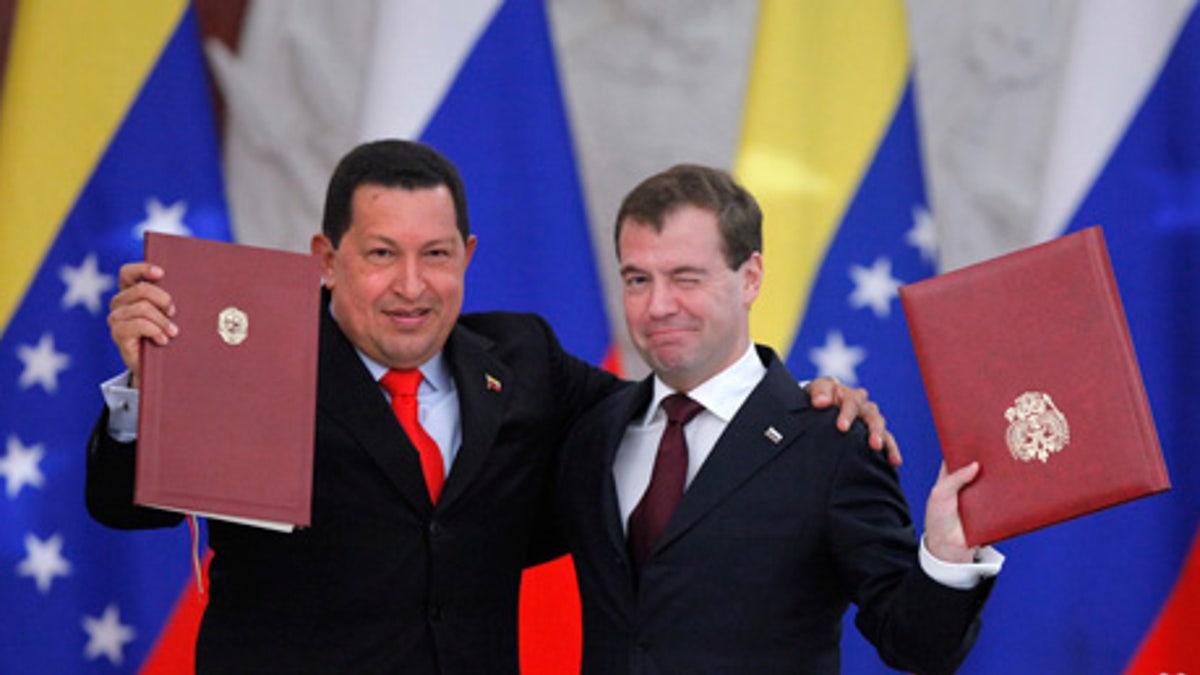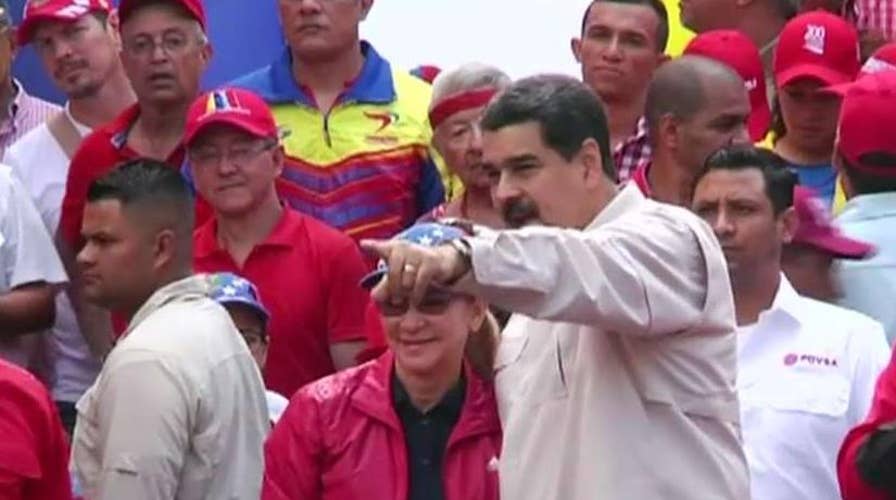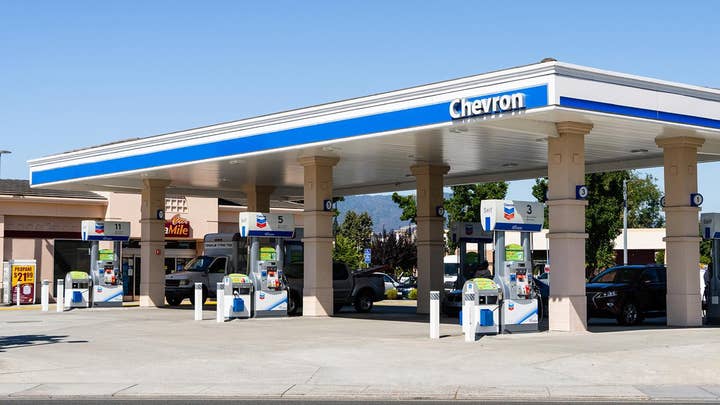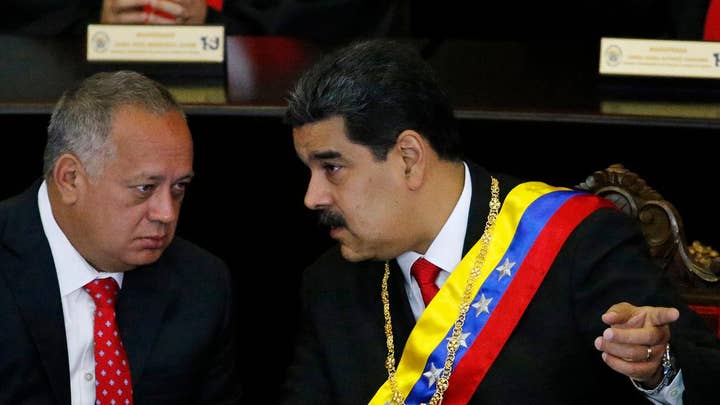White House warns world not to do business with Venezuela
Washington imposes a full economic embargo on the socialist regime to try and push Nicolas Maduro out of power; Phil Keating reports.
The clock is ticking on the U.S.’s last remaining foothold inside the Venezuelan oil industry, with this month’s sanctions waiver deadline for American companies operating in the embattled country looming closer.
The waivers granted to Chevron and four U.S. oil-services companies – Halliburton, Schlumberger, Baker Hughes and Weatherford International – last year by the U.S. government, despite the efforts to squeeze the Maduro regime, are slated to expire on Jan. 22.
What could happen after that is ripe for debate. It remained to be seen if the U.S would give the green light again to Chevron and its companions to continue drilling.
The Treasury Department twice extended the waiver, known as General License 8D, last year. But, the State Department’s special representative for Venezuela, Elliott Abrams, cautioned earlier this month that the administration was exploring “new additional measures” to push out Nicolas Maduro, the country’s president whom the U.S stopped recognizing as a legitimate leader a year ago, opting instead to back opposition figurehead Juan Guaidó.
Secretary of State Mike Pompeo, in the past, has vocalized support for the sanctions waivers as a means to keep U.S. presence in the region and make for a faster rehabilitation of the sector should Maduro leave office.
“Chevron’s presence has made very little difference in keeping Maduro in power. The much stronger case is the one Chevron makes that we will want American companies to have some role in the future – which is certainly better than letting Russians and Chinese claim these assets and control,” Roger Noriega, a former assistant secretary of state for Western Hemisphere affairs and a visiting fellow at the American Enterprise Institute [AEI], told Fox News.
VENEZUELA'S GUAIDÓ FORCES HIS WAY INTO CONGRESS AMID STANDOFF
However, other analysts contended that the very presence of those companies was keeping him in power.
“They [Chevron] help maintain high productivity levels and produce billions of dollars a year for the country. Chevron... has been in Venezuela for over 100 years,” noted Ken Mahoney of the New York-based Mahoney Asset Management. “The fact that Venezuela has large oil refineries gives Maduro bargaining power with the likes of the U.S, China, India and Russia. This, in turn, generates solid [gross domestic product] figures and keeps him in power that much longer. Maduro has trading support with China and Russia, which gives him the backing of two of the biggest economic powers in the world.”
As of November, Venezuela was producing an average of 700,000 barrels per day – a far cry from the 1.7 million barrels it produced per day four years earlier, dropping 32 percent last year alone. That figure is expected to tumble even lower in 2020 – evidence that the U.S. sanctions were having the desired crippling impact, experts say.
Chevron has had roughly 300 employees in Venezuela and participated in joint venture equity affiliates with the state-owned oil company PDVSA involving heavy and extra heavy crude projects encompassing over 8,800 workers. The company invested over $100 million between 2006 to 2018, with community education, health and economic development programs designed to benefit people living in areas of operation.
Should the U.S. allow the waivers to lapse, thus prompting Chevron and the others to leave, it’s likely Caracas will seize the assets and offer them to Russia, China and other allied entities.
SOLEIMANI'S KILLING IGNITES RUSSIA-VS.-IRAN SCHISM IN SYRIA
An intelligence graph shown to Fox News, which pinpointed contract block ownerships in Venezuela, showed Russia had 2 million net acres and 6 billion recoverable reserves, China had 900,000 net acres and 11 million recoverable reserves, Iran held 600,000 net acres and 2 billion reserves, and Cuba had 1.3 million net acres and 3 billion reserves.
“At June 30, 2019, the carrying value of the company’s investments was approximately $2.7 billion, and for the six-month period ended June 30, 2019, the company recognized losses of $21 million for its share of the net income from the equity affiliates,” Chevron spokesman Ray Fohr told Fox News.
That figure would represent the loss to the oil giant if Chevron were to leave.
“If Chevron is forced to leave Venezuela, non-U.S. companies will fill the void, and oil production will continue,” Fohr warned.
According to Mahoney, given that the U.S. was the largest importer of Venezuelan crude, the estimated loss as a result of sanctions in 2019 to the Venezuelan economy was some $11 billion – and growing.
The U.S., according to analysts, might choose to squeeze further by setting its secondary sanctions sights on the likes of Russia and Cuba, countries that have remained steadfast in their support of Maduro and the oil sector. As it stood, an estimated 70 percent of the oil trade has been at the behest of the Moscow-owned Rosneft. China also remained a top buyer.
However, other analysts contended that sanctioning the sector even further would do little to squash oil transfers, which increasingly have been taking place “off the grid.” This entailed ships “going dark” by switching off compulsory safety transponders as a means to evade U.S. sanctions prohibiting purchases from Venezuela and PDVSA.
“We have seen this occurring more frequently around the globe over the last few years, as bad actors look to evade International sanctions on oil sales. All oil tankers over 300 gross tons are required to have an operating AIS (Automatic Identification System) on board,” explained Daniel Gianfalla, an international maritime security expert. “It is an excellent tool for vessel safety at sea. Unfortunately, the AIS can be switched off by the vessel to avoid route and positioning detection, making satellite and shore sidetracking more difficult. Tankers have ‘gone dark’ or disappeared from tracking for days at a time, then reappear loaded and on a new route.”
What’s happened when ships doing business with Venezuela went off the radar? That’s been a swirl of mystery. One source working in the oil sector told Fox News that there’s been an uptick in “shadowy shippers taking the crude,” avoiding docking and running perilous “ship-to-ship” transfers to circumvent tracking.
“My guess is that Chevron will continue to receive a waiver because the administration sees this as a reasonable arrangement to keep an American company on the ground satisfying its contractual obligations,” Noriega said. “That tells me that there is no sense of urgency by the Trump administration anymore.”
But, not all analysts agreed.
“It’s unlikely the U.S. will renew sanctions after extending the initial waiver for 90 days. The deadline of January 22 will be watched very closely,” Mahoney projected. “With the [presidential] election just around the corner, Venezuela won’t be taking center stage. The president has a lot on his plate, and Venezuela is not a priority.”

Russia's then-President Dmitry Medvedev, right, and his Venezuelan counterpart Hugo Chavez showing signed documents during a meeting in Moscow in 2010. (AP Photo/Alexander Zemlianichenko, File)
CLICK HERE TO GET THE FOX NEWS APP
And, after over a year of ever-tightening sanctions, the support of a new government in Venezuela and a very public push to send Maduro packing, the disputed president and his circle have remained at the Caracas helm.
“Maduro managed to weather the storm because U.S. policymakers underestimated the regime and overestimated Venezuelan politicians. The regime was never going to splinter,” Noriega added. “Key figures in the opposition were going along with U.S. strategy because they thought Trump was going to use military force. The second they realized that the U.S. was not going to use force, they began to hedge their bets and focus on the terms of their surrender.”






















